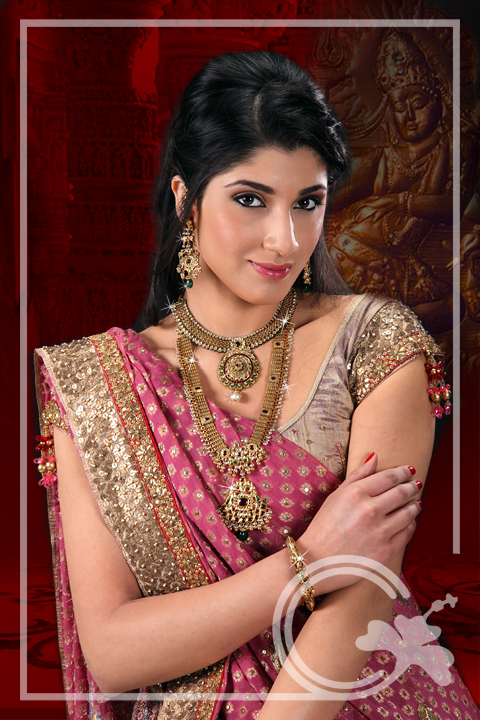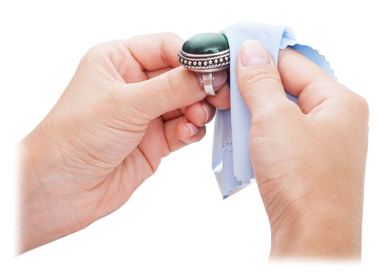Here are a few simple tips to keep your jewellery looking it's best for much longer....
Firstly, always buy the best quality that you can afford - some jewellery may seem to be a bargain, but on inspection may be poorly made.
Protection
Always protect your jewellery from sharp blows, scratching, chemicals, sunlight and heat/cold. Ideally, store your jewellery in a soft lined box or pouch. Try to keep pieces apart, so that they don't rub together or tangle up.
- Wear jewellery for appropriate tasks, avoid wearing rings when cleaning, gardening or performing sports activities.
- Don't let your jewellery come into contact with nail polish removers, perfume and hairspray
- Clean your jewellery regularly, use a professional jewellery cleaning product (always read the manufacturers instructions)
- When washing your hands (away from home) - don't place your rings on the wash basin - remove them and place them onto your necklace or place in a pouch in your handbag/purse
- Never go swimming in your jewellery, chlorine in swimming pools can cause damage
Gold, Platinum & Silver Tips
Generally, the higher the carat weight of gold, the softer the metal (gold is a soft metal). So that 9ct gold, being alloyed with other metals tends to be less resistant to scratching than say 22ct gold. This is why some recommend that you should wear rings of a similar quality together (e.g. wedding and engagement rings).
Because gold is a soft metal and some manufacturers use this feature to "stretch" out the metal to produce a "showy" piece, but don't take into account the need for strength. The unsuspecting buyer thinks that they're buying a great piece of jewellery, only to find it going out of shape on the first wear. All our gold jewellery is inspected by a professional jeweller, before dispatch, we only deal with manufacturers of the highest reputation.
Sterling silver will polish up by rubbing or buffing it with a soft cotton cloth or a Sunshine Cloth. If you store silver in plastic bags with an interlocking seal, it will be less prone to tarnish.>
Gold, silver, and platinum score only 2 to 4 on the Moh's scale of hardness, sand is 7 on the Mohs scale, which means your precious metal is softer than sand and can be easily scratched.
Gemstone Tips
Gem stone hardness is based on a standard called the Mohs scale. The higher the Mohs scale number, the harder the stone is. When the Mohs scale was developed, early gemologists tried rubbing one stone against another to see which stone caused scratching on another. Quartz (the stone that makes up sand) is rated at 7 on the Mohs scale, and that is why any gemstone with a rating of less than 7 is easily scratched (such as coral, lapis lazuli, opal, pearl, and turquoise).
Also, some stones can be quite porous (such as opal, pearl, turquoise), that is why you shouldn't leave these kind of stones immersed in water for too long.
Common stones that are damaged in sunlight, these include:
- Amethyst: becomes paler
- Ametrine: may change colour
- Aventurine: translucent types often lose colour
- Beryl: brown or orange types may change to pale pink
- Citrine: may change colour
- Kunzite: becomes pale or loses colour
- Rose Quartz: becomes paler
- Smoky Quartz: becomes paler
Fashion Jewellery
Gold or Silver plated items can vary considerably in quality. To be called Gold Plated, jewellery only needs to be coated in gold up to 1 micron. Better made products are usually coated upto 3 microns. Because precious metals are only coated onto base metal, the care instructions given above are even more relevant. We would also personally advise you not to wear "fashion" jewellery on a day to day basis, but rather for "special occassions" - that way you'll enjoy them for much longer!


